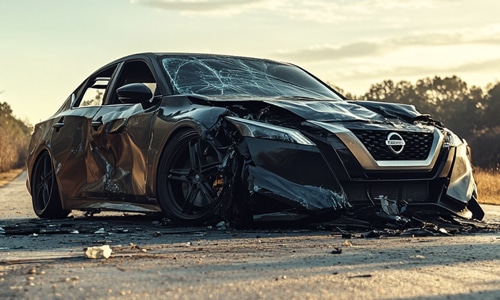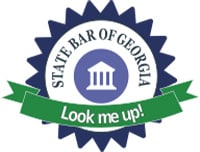Key Takeaways
- Uninsured motorist coverage offers financial protection for accidents involving uninsured or underinsured drivers, covering medical expenses and other damages.
- You can sue an uninsured driver for damages, but it’s essential to assess their financial situation as recovery may be challenging if they lack assets or income.
- Exploring alternative compensation methods, such as government programs and Personal Injury Protection (PIP), can provide additional financial support when suing is not viable.
Understanding Uninsured Motorist Coverage
Uninsured motorist coverage is a crucial component of your car insurance policy, offering financial protection if you’re involved in an accident with an uninsured or underinsured driver. It prevents you from shouldering the financial burden of medical expenses, lost wages, and other damages caused by the at-fault driver.
A major benefit of uninsured motorist coverage is its compensation for various damages, including medical expenses and pain and suffering. It steps in when the other driver lacks adequate insurance. Supplementary uninsured/underinsured motorist (SUM) coverage can further extend this protection, providing broader financial support.
Uninsured motorist coverage in your auto insurance policy offers peace of mind by serving as a safety net if you encounter an uninsured driver. Reviewing your own insurance coverage and insurance policy to understand the extent of this coverage is essential to ensure you have adequate protection.
Hurt? Your Search for Justice Ends Here. Let’s Get Started, for FREE.
Get your FREE and confidential case review today.
Filing a Claim with Your Own Insurance Company
After discovering the other driver is uninsured, promptly notify your insurance company. Delaying can complicate the claim process. Your insurer will guide you through filing a claim under your uninsured motorist coverage.
When filing a claim, provide documentation like proof of damages and the police report. Your insurance company will work to recover costs from the uninsured driver, easing the process for you. Avoid discussing your opinion of the incident during the initial call to prevent misunderstandings.
Claims may be influenced by the relative fault of the parties involved, which can affect the payout. If denied, you can appeal through your insurer’s internal processes. Consulting with a law firm like Wolfe Law Group can clarify filing deadlines and help negotiate for fair compensation.
Suing the Uninsured Driver for Damages
You can sue an uninsured driver if they caused injuries or damages to your vehicle. However, weigh the pros and cons before deciding. Challenges like the driver’s financial situation and the costs of pursuing a lawsuit may make suing less advantageous.
If you sue, you can seek compensation for medical expenses, vehicle damages, lost wages, and pain and suffering. A successful lawsuit requires the uninsured driver to pay the damages awarded. However, collecting these damages can be difficult if the driver lacks assets or income, making enforcement challenging.
The legal process involves gathering evidence like witness statements and police reports to support your case in court. Filing a lawsuit and preparing the necessary legal documents may incur court costs and legal expenses. Additionally, consider issues of fault and shared liability when deciding to litigate.
Assessing the Uninsured Driver’s Financial Situation
Before pursuing a lawsuit, determine if the uninsured driver has sufficient assets or income. Suing someone with no financial means to pay the judgment could waste time and resources, making it essential to assess the at-fault driver’s financial situation first.
A law firm like Wolfe Law Group can assist by running a credit and asset check on the uninsured driver before filing a lawsuit. This step helps you make an informed decision about proceeding with legal action based on the potential for recovering damages.
Small Claims Court vs. Higher Courts
If you decide to sue, you can take your case to small claims court or higher courts. Small claims court offers a more accessible option with lower fees and simplified procedures for vehicle damage compensation and property damage, providing a cost-effective and quicker resolution without extensive legal representation.
However, lawsuits outside of small claims court are more complex and often require an experienced personal injury attorney. Such cases may involve higher stakes and demand a detailed understanding of legal procedures, making professional legal support essential in a personal injury lawsuit.
Alternative Compensation Methods
If suing the uninsured driver is not viable, consider alternative methods to seek compensation. Government compensation programs provide financial assistance to individuals injured in automobile accidents, offering a safety net when traditional insurance options fall short. These programs are particularly useful if the uninsured driver lacks the resources to pay a judgment.
Pursuing claims through uninsured motorist coverage or state funds are other avenues to explore. These options help you recover compensation for your damages without a lengthy legal battle. Understanding the eligibility criteria and limitations of these programs ensures you receive appropriate compensation.
Government Compensation Programs
Some states offer compensation funds to support victims of uninsured drivers. These programs assist victims of uninsured or hit-and-run accidents, providing a lifeline when other compensation methods are unavailable.
Accessing government compensation programs requires meeting eligibility criteria and following specific application procedures set by each state. Understanding these procedures and ensuring you meet the qualifications can help secure the financial assistance you need.
Personal Injury Protection (PIP)
Personal Injury Protection (PIP) coverage is another valuable resource. PIP not only pays for medical expenses but also covers lost wages from an accident. It helps policyholders manage the financial impact of an accident, providing a safety net during recovery through insurance policies.
Understanding the benefits of PIP coverage is vital for anyone involved in an accident, especially with an uninsured driver. This coverage offers peace of mind and financial stability during your recovery.
Steps to Take Immediately After the Accident
After a car accident with an uninsured driver, first, assess the scene for injuries or hazards and ensure everyone’s safety. Calling the police is crucial, as their report can facilitate the claims process with your insurance company following the auto accident and car accidents.
Collect the contact and vehicle information from the uninsured driver and any witnesses. Documenting vehicle details, time, and location of the accident can help when dealing with your insurance company. Photographs of the scene, vehicle damages, and other relevant details can support your claim.
Engaging a law firm like Wolfe Law Group can streamline gathering evidence and navigating legal complexities. Professional legal support alleviates stress, allowing you to focus on recovery while they handle legal matters.
Were You Hurt in a Car Accident? Let Us Help You.
Consulting an Experienced Personal Injury Attorney
Consulting an experienced personal injury attorney is crucial after an accident with an uninsured driver. Wolfe Law Group can evaluate your case and navigate the complexities of suing an uninsured driver. An attorney can protect your rights and prevent costly mistakes in the claims process.
Assistance from Wolfe Law Group is essential to determine eligibility for compensation programs and navigate the legal landscape. They guide you through filing a claim or lawsuit, explaining what to expect and how to gather evidence. Wolfe Law Group offers free consultations, helping you understand your case without financial commitment.
Understanding the implications of having or not having car insurance is crucial, and consultation with Wolfe Law Group can clarify your legal options.
Impact of Not Having Car Insurance Yourself
Not having car insurance can significantly impact your ability to recover damages if involved in an accident with an uninsured driver. Suing an uninsured driver is challenging if they lack the financial means to pay the damages awarded. The potential recovery may be limited by the defendant’s financial situation, making it difficult to receive full compensation for your losses.
Legal action against an uninsured driver incurs costs, including court fees and attorney expenses. Filing a claim with your insurance under uninsured motorist coverage is often more practical than suing.
Uninsured motorist coverage provides financial protection through insurance coverage, reducing the risk of bearing accident costs alone for uninsured motorists.
Frequently Asked Questions
Can I sue an uninsured driver if they caused the accident?
You can sue an uninsured driver for damages, but consider the potential difficulties, including their ability to pay, before proceeding. It may be more practical to explore other options, such as your own insurance coverage.
What should I do immediately after an accident with an uninsured driver?
Immediately after an accident with an uninsured driver, assess for injuries, call the police, collect necessary information, and document the details. Engaging a law firm can also help navigate the legal complexities involved.
How can I file a claim with my own insurance company if the other driver is uninsured?
To file a claim with your insurance company for an accident involving an uninsured driver, promptly notify your insurer and provide essential documentation, such as proof of damages and the police report, while refraining from sharing your personal opinions about the incident. This approach will help streamline your claims process.
What are the benefits of Personal Injury Protection (PIP) coverage?
PIP coverage offers significant benefits, including coverage for medical expenses and lost wages after an accident, ensuring financial support while you recover.
What are the challenges of suing an uninsured driver?
Suing an uninsured driver poses challenges such as identifying their financial assets, incurring potential legal costs without guaranteed recovery, and the difficulty of collecting a judgment if the driver lacks assets or income. This makes it crucial to consider all factors before proceeding with legal action.







